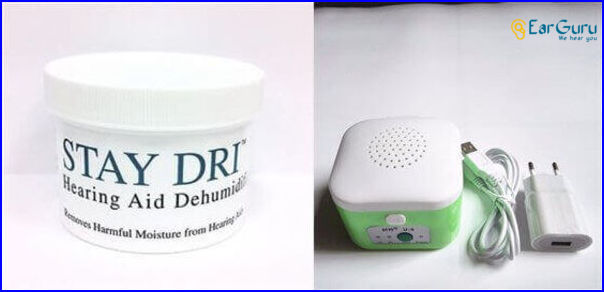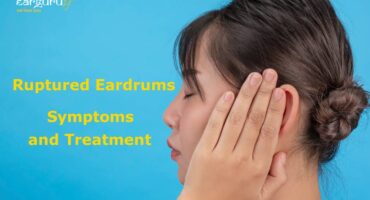These are the winter months for our Country. Being in a tropical Country with average summer temperatures hovering around 33 to 35 degrees Celsius most of us look forward to the few months of winter. It may sound strange but people with a Hearing loss or the users of hearing aids might have faced certain difficulties. Ear pain due to cold can cause many problems in the winter season. Let us find out how winter or cold weather affects our hearing.
The most common winter ailment to affect the ear is an infection. Children more than elders are prone to ear infections. Ear pain due to cold and flu (influenza) are very common and acceptable during the winter months. This could lead to an ear infection which is caused due to the presence of bacteria.
We tend to cover our ears during the winter which traps the bacteria inside the ear. The infection causes the affected parts to swell which results in a reduced hearing. The swelling blocks the sound waves from reaching the inner ear resulting in hearing loss due to cold.
A visit to the ENT (Ear, Nose & Throat) Doctor is advisable, the doctor will check the ears using an Otoscope.
After a good look inside the ear, the Doctor will clean the ear if there is a presence of fluid. Accordingly the Doctor will prescribe antibiotics to get rid of the infection. It is important that a doctor is consulted if irritation or slight pain in the ear persists. It is not advisable to try any home remedy.
Another reason why we get ear infections easily in winter is that the cold weather slows down blood circulation. Lesser blood flows through the ear and other parts of the body.

It is advisable to keep the ears dry. Take care to thoroughly dry your ears after a shower. Use scarfs and Ear Muffs which are effective in keeping your ears dry and warm. At times scarfs are more of a fashion statement and do not protect the ears.
Hardening Of Ear Wax Due to The Cold Weather
Cold weather is also responsible for the hardening of ear wax. The hardened ear wax blocks the sound waves and reduces the hearing ability. The effect of reduction of hearing is not very noticeable in people with normal hearing. But it can cause trouble for people who already suffer from hearing loss. Hardened ear wax also causes earaches and headaches in certain people.
Though this situation is temporary and will go away once the weather turns slightly warm it does cause inconvenience. People using Hearing aids will also face difficulties as their hearing aids have been set or programmed for a particular level of hearing loss. This setting has not taken the earwax blockage into account. Though there are ways to remove ear wax at home do not attempt if you are not confident to do so, insertion of foreign articles like pins and cotton buds are not advisable.
Abnormal Bone Growth
Another situation created by extreme winter is the abnormal growth of bone in the Ear Canal. This is nature’s way of protecting our ears from extreme cold. This abnormal growth is known as “exostosis”. The extended or abnormal formation of bone over the existing bone forms an obstruction in the ear canal resulting in reduced hearing. This growth also creates difficulty in cleaning and removal of ear wax. In our Country, this may be experienced in the northern parts.
Another problem though not restricted only to winter is an earache while flying. Winter months and holidays go hand in hand. Even a slight cold or ear infection can make the flight unbearable.
Blockage of The Eustachian Tube
An infection can result in blockage of the Eustachian tube. This tube is responsible for equalizing the pressure inside the ear. The outside pressure and the pressure in the ear remains the same. In case of infection, the Eustachian tube is fully or partially blocked and pressure cannot be equalized. This is true in case of mountain climbing or travel to a resort at higher altitudes. In case of driving to a higher altitude the ascent is slow and the ear is capable of adjusting itself and there is no pain.
One might get the feeling of stuffed ears and reduced hearing but no discomfort. However during the aircraft’s take off and descent, the change of altitude is very rapid. The ear is unable to adapt to the sudden changes in pressure.
In case of discomfort or pain, the flyer is advised to keep swallowing. The swallowing action releases the blocked air in the Eustachian tube and relieves the pain to some extent. Flyers can also keep chewing gum or candy. Frequent yawning also helps.
One hears a pop in ear indicating release of pressure. If the infection is more and air travel cannot be avoided it is recommended to consult your Doctor for prescribing a decongestant to make the journey bearable.
Tips for Hearing aid users.

Hearing aid users should not only take the above precautions but also take care of their hearing aids, if one is travelling to a cold destination it is advisable to carry extra batteries, as the temperature drops the working life of the battery is also reduced. One can always keep the spare batteries in between the warm clothes to extend the life of the batteries.
The moisture in the hearing aid tends to cool down and form water droplets as one moves from warm weather to colder areas, it is advised to use electric dehumidifiers or stay dry containers available at all hearing aid dispensers.



